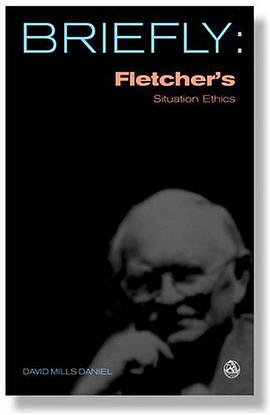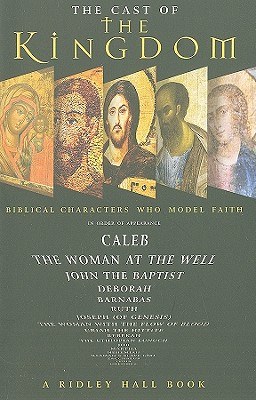

具體描述
Accused of a terrible crime, Rupert constructs an elegant argument that--at least in his mind--exonerates him. His imagined defense is by turns shockingly honest and incredibly funny, pulling the reader (and potential jury) in two different directions. Rupert's rants--about insults, about how to pick up women, about men who wear sweaters--are incredibly entertaining and compelling, yet, at the same time, the reader knows--both from his strange anecdotes and the way he presents himself--that Rupert is unhinged, that he's trying to deceive himself along with everyone else, that his defense rests on its presentation, not on its content. Rupert's speech is also structured by an ancient rhetorical technique in which an argument is remembered and related by associating different pieces with specific locations. As he organizes his defense around various squares and apartments and other buildings, the reader is taken on a virtual tour, visiting the spots in the city that are most integral to Rupert's psyche. Rupert: A Confession is a brilliantly composed monologue that fully exposes the inner workings of its speaker's mind, despite all the misdirection and amusing anecdotes he employs. Bringing to mind Neil LaBute's In the Company of Men, the novel is offensive, funny, and compelling all at once, and is a vivid example of contemporary Dutch literature. The art of the insult is a skill that few can master. Most people yell out a few vulgar and insulting names, adopt an angry look, and think that's the end of it. But, like every art, it requires highly specific skills and talents, and many people underestimate that. First of all, the most successful insull requires the creation of an unbridgeabledistance. Raising your voice has the opposite effect in this respect. The most likely scenario is that the object of your insults will reciprocate using the same weapon, resulting in a face off between two bellowing baboons in which both appear equally ludicrous. It's better and more humiliating when your opponent decides not to let himself be drawn into a volume contest and quietly leaves. Idiots are tempted to see this retreat as a victory, but the opposite is true. It's the superior retreat of the laureled man of battle whose eye is turned to matters of greater importance than a skirmish with a gang of barbarians who challenge him with pathetic war-cries on a strategically unimportant hill. . . .] In order to create an unbridgeable distance, one should not insult with the blunt power of the sword but with the inimitable elegance of the brush. The man who speaks with the mild and soft voice of civilization instantly swipes the weapons from his opponent's hands--every angry word counts as proof of the other's helpless inferiority. Some of the best insulters I know accompany their piercingly soft sentences with superior ironic smiles. Although they generally achieve a satisfying result with this, I'm of the opinion that there's danger in this facial expression. Irony is an essential ingredient of the successful insult, it's true, but the most effective form of irony is like a low-flying stealth bomber that remains invisible to enemy radar. It is better to offend with an open expression of politeness, friendliness, and charity. The most important thing is that the true insult shows creativity; it can't just be a random string of references to excrement and sexual organs. And just as thebest style is quotable, the best insult has an aphoristic quality that does not just insult the victim but also, as an ultimate humiliation, renders him superfluous, so that the brio of the formulation of the insult outlasts the name of the victim. The renowned critic, Woulter Parr, was a master in this. The last paragraph of his review of one of K. Horvath's plays engraved itself in my memory after a single reading: "This is no play to be lightly shoved aside, but one that deserves to be thrown with great force. The stage set was lovely, but the actors kept standing in front of it. It was a performance in which all of the actors clearly and intelligibly articulated their lines, alas. Kitty Becker, in the lead, exploited the whole range of emotions from A to B. One would have to have a heart of stone not to watch her suicide at the end of the play without bursting out laughing. I never forget a face, but in the case of Kitty Becker I'm happy to make an exception. Giving Hands is the type of play that gives failure a bad name. The only original idea about art ever to come from Ms. Horvath's pen had to do with her superiority as a writer in relation to writers greater than she. First God created the idiots. That was just practice; afterwards he created Ms. Horvath. It was an act of mercy that God allowed Mr. Habold Sicx and Ms. Horvath to marry, thus making two people unhappy instead of four." You don't need to see the explanatory hand gestures or Ms. Horvath to be fully convinced by this. Everything is always easier on paper, that is true--and I realize that now as I stand here before you gasping out my confession without the aid of the written word--but the ad hoc insult without anaudience, man to man in the street, ought to respect the same principles. One often assumes one should be able to get straight to the point for that, and that's a talent you either have or you don't. This is only partly true. The spontaneous insult is an art, and, up to a certain point, one can learn any art. It's the same with the lethal martial arts I have become familiar with. A person who isn't intimidated by one's opponent, and who regards every lunge as a weakening of the opponent's defense, won't have difficulty finding chinks in his armor. And as long as you have confidence in your refinement and superiority, the most creative counter attacks will occur to you just like that. He who, in an unguarded moment, finds himself in a risky situation and cannot come up with an adequate reply can rely on three simple heuristic principles. The first g
著者簡介
圖書目錄
讀後感
評分
評分
評分
評分
用戶評價
相關圖書
本站所有內容均為互聯網搜索引擎提供的公開搜索信息,本站不存儲任何數據與內容,任何內容與數據均與本站無關,如有需要請聯繫相關搜索引擎包括但不限於百度,google,bing,sogou 等
© 2025 book.quotespace.org All Rights Reserved. 小美書屋 版权所有




















